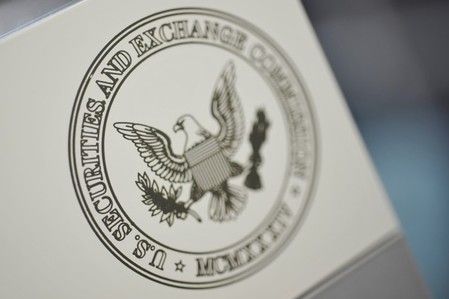Advertisement
Martin Lewis outlines steps to take if a scammer calls you, including how to

Martin Lewis reveals what to do if a scammer calls you and how to …
A Quick Introduction: Don’t Hit the Panic Button.
Fraudulent calls are unfortunately a common phenomenon in our increasingly digital world. Con artists employ a myriad of strategies to cheat innocent people out of their hard-earned money. This article is here to arm you with the knowledge and tactics needed to protect yourself from these deceptive practices.
Consumer expert Martin Lewis recently shared some invaluable advice on how to react if you find yourself on the receiving end of such a call. Heed his words and share this information with your loved ones – awareness and preparation can make all the difference in avoiding such a potentially disastrous experience.
Martin’s advice is clear, concise, and easy to understand. It provides practical steps that anyone can follow. The key is to remain calm and remember: knowledge is power. By being informed, you’ll be well-prepared on tackling any suspicious calls that may come your way.
For instance, imagine if you receive a fraudulent phone call. The caller claims to be from your bank but something doesn’t feel right. Instead of panicking, you follow Martin’s advice: don’t trust the number displayed, don’t give out personal information, hang up, and call your bank back on their official number.
- Never trust the caller ID:
- Do not share any personal or financial information until you have verified the legitimacy of the caller:
- If concerned, hang up immediately:
- Call your bank (or other institution) back on its official number:
- Log the date and time of the call along with any details provided by the caller:
- Speak up! Report the incident to the appropriate authorities:
Recognizing the Signs: The Red Flags of Scam Calls.
In this day and age, being able to identify scam calls is an indispensable skill. Con artists are clever and constantly upping their game. They may use well-known company names or claim there’s a serious problem with your account. Sometimes they might even threaten you with imprisonment or legal action if you don’t comply.
Martin Lewis emphasizes that it’s essential to remain vigilant. Scammers tend to rely on fear tactics to coerce victims into providing information. By understanding the common signup of these scams, you’re much less likely to fall prey to them.
Here are some red flags to be aware of when dealing with such suspicious calls. Feel free to bookmark this page for future reference or share it with loved ones who could benefit from the information.
Say you received another unexpected call. This time, the caller claims to be from a government agency and presses you to make a payment or face legal consequences. Instead of falling for it, you recognize this as a classic scare tactic and terminate the call.
- The caller is pushing for immediate payment:
- Demanding payment in gift cards, prepaid debit cards, or wire transfers:
- Oversharing technical details to appear legit:
- Offering to ‘fix’ your computer or device remotely:
- High-pressure techniques and scare tactics:
- Calls at awkward times (very early in the morning or late at night):
Returns & Refunds: Unraveling What’s Possible.
Becoming a victim of a phone call scam is undoubtedly quite traumatic. But there’s no need to lose heart completely. Depending on the circumstances and your quick action, there’s a possibility that you may be able to retrieve your misplaced funds.
Martin Lewis provides some glowing insights into this aspect as well. Communication is key after such an event. It’s essential to reach out to your bank as soon as possible and inform them about the incident.
Let’s discuss some of the potential paths to redemption in case, despite all precautions, you’ve fallen victim to a scam call.
A day besides, you get scammed and lose some money. Instead of giving up or blaming yourself, you follow Martin’s advice: you notify your bank promptly, provide them with details about the incident, and work closely with them during their investigation process.
- Notify your bank immediately:
- Provide detailed information about the incident including time, date, and conversation details:
- If the transaction was recent, the bank might be able to block it:
- You might be covered by your bank’s fraud protection scheme:
- Certain credit cards provide protection against fraudulent transactions:
- Possibility of legal recourse if all else fails:
Helpful Tools & Resources: Extra Security Layers.
No security measure is too minor when it comes to protecting yourself from scams. Every step you take adds up and fortifies your defence against these deceptive practices. Thankfully, there are many tools and resources available which can drastically reduce your vulnerability to scams.
Martin Lewis suggests several such tools and services which are wide-ranging in functionality. From convenient phone settings to dedicated scam detection apps, the measures you can take against scammers are versatile and effective.
Let’s explore these valuable tools and resources that can offer you greater peace of mind moving forward.
You install an app that alerts you of potential scam call numbers. Even better, it blocks them automatically, significantly limiting the chances of you accidentally answering a scam call.
- Phone settings: Block unknown callers:
- Third-party apps like Hiya or Nomorobo:
- Register for the Direct Marketing Association’s (DMA) mail preference service:
- Sign up for Call Protect with your phone carrier:
- Use a virtual private network (VPN) to maintain internet privacy:
- Report scams on the Federal Trade Commission (FTC) website:
Taking Action: Reporting the Scam.
Reporting a scam might seem like a tedious task, but it’s a crucial one. Not only does it help in potentially retrieving your lost assets, but it also aids in building a case against the scammer. Your information could prevent others from falling victim to similar traps.
Martin Lewis believes strongly in taking this step and provides advice on how to proceed. It’s important to log as many details as you can about the scam – when it happened, what was said, any contact details provided, etc. The more data you have, the easier it will be for authorities to trace the fraudsters.
Let’s break down the process of reporting a scam and understand why each step matters.
After experiencing a fraudulent call, you recall Martin’s advice and take action. You note down every detail you can remember about the incident and report it to your local law enforcement agency, your bank, and other relevant bodies.
- Contact local law enforcement right away:
- Reach out to your bank immediately:
- Report to the Federal Trade Commission (FTC), if in the US:
- If in the UK, report to Action Fraud:
- If the scam involved a specific company or institution, notify them as well:
- Support your claims with as much evidence as possible (phone records, call logs, etc.):
Education and Awareness: Prevention is Better Than Cure.
Fighting scam calls is not just about reacting correctly in the moment. It’s equally about fostering awareness and educating oneself and others about these nefarious activities. Most scams work because of knowledge gaps – they exploit our ignorance and use it against us.
Martin Lewis champions the importance of continually educating ourselves about the evolving landscape of scams. With knowledge comes power – the power to protect ourselves and our loved ones, and to create an environment that is dangerously inhospitable for fraudsters.
In this part, we’ll delve into some effective steps for enhancing education and awareness around scam calls.
You start attending local community meetings that address the threat of phone scams. You also subscribe to online newsletters that provide continual updates on new types of scams and how you can guard yourself against them.
- Attend workshops or webinars about scam awareness:
- Follow trusted sources online to keep up-to-date on new scammers’ tactics:
- Share credible information with family and friends regularly:
- Regularly check your financial statements for unusual activity:
- Teach your seniors and kids about recognizing and avoiding scams:
- Consider joining a neighborhood watch group focusing on scam prevention:
Recap: The Key Learnings
In this article, we’ve collated and explained some brilliant advice from consumer expert Martin Lewis on dealing with scam calls. With the right knowledge, tools, and awareness, we can confidently protect ourselves against these fraudulent activities.
We’ve explored how to react if a scammer calls you, the key signs of a scam call, possible avenues for refunds or recovery, critical reporting steps, and ways to fortify yourself against scams through education and awareness. We encourage you to revisit this information regularly, share it widely, and of course, implement it conscientiously.
Let’s take a moment to recap our key learnings from this discussion. Here are the essential points neatly summarized in a handy table format for your reference:
| What To Do If A Scammer Calls You | Signs Of A Scam Call | Refunds & Recovery | Tools & Resources | Reporting A Scam | Education & Awareness |
|---|---|---|---|---|---|
| Doubt caller ID, no personal info exchange, hang up, call back on official number. | Immediate payment request, unusual payment methods, fear tactics, odd timing. | Contact bank ASAP, provide details, may be covered by bank / card protection, legal option. | Block unknown callers, utilize third-party apps, sign up for DMA mail service, use VPNs. | Contact local law enforcement, report to FTC / Action Fraud, notify involved companies. | Attend scam awareness events, follow trusted sources, regularly check financial statements. |
Final Thoughts: Staying Ahead of The Game
In conclusion, it’s perfectly plausible to remain a step ahead of scammers by staying vigilant, informed and prepared. Embrace the power of awareness and arm yourself with knowledge. Remember, prevention is always better than cure. So keep these invaluable points in mind and stay safe!
Lastly, never underestimate the importance of spreading the word among friends, family, and community about these threats. The more we join hands to combat such deceptive practices, the safer we make our societies. Stay alert, stay proactive – let that be your mantra against scam calls.
Remember, the battle against scam calls isn’t just fought in the heat of the moment. Consistent education, caution, reporting, and sharing can help us tip the scales in favor of security and safety. Here’s to staying scam-free and empowered!










